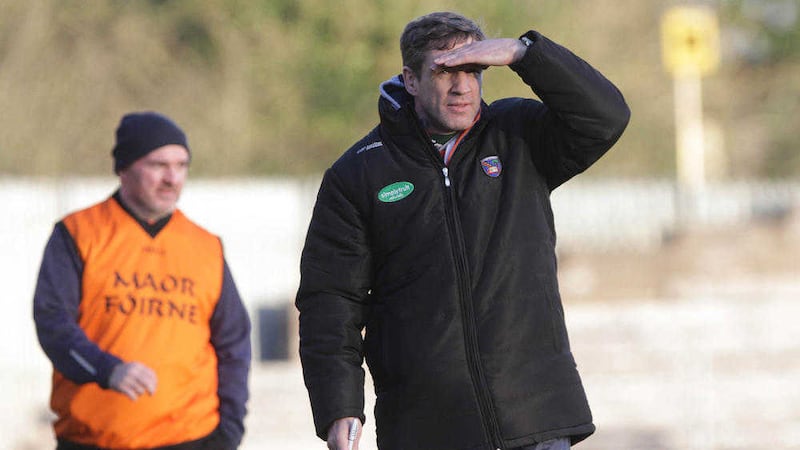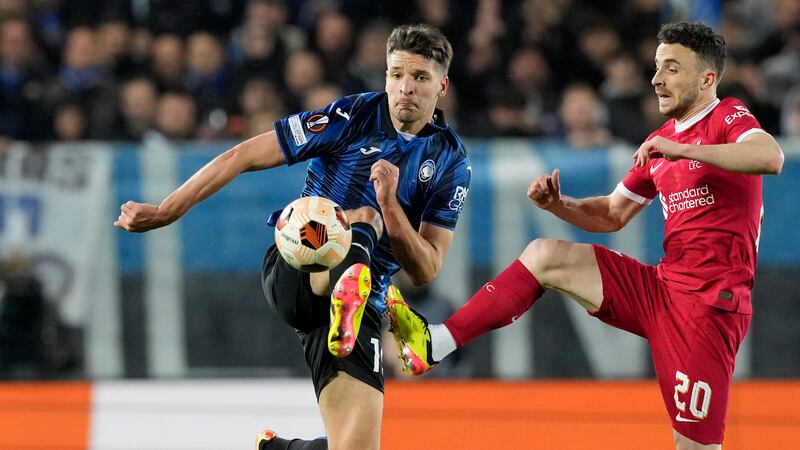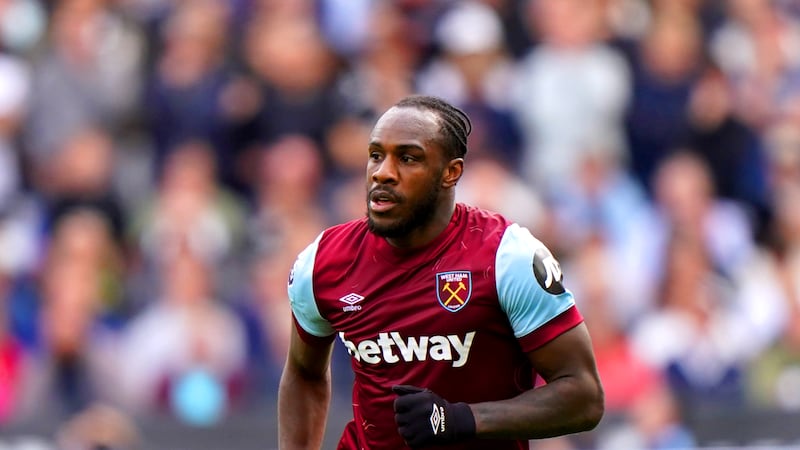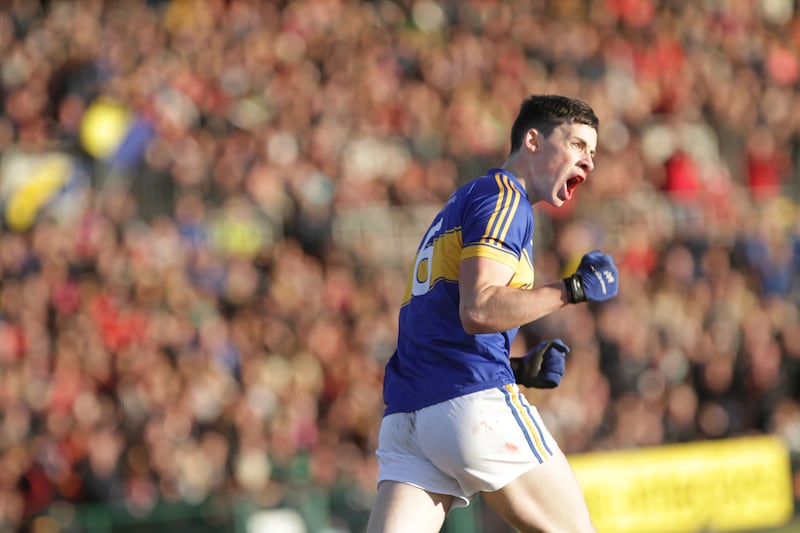THE criticism, on the surface at least, doesn’t bother Kieran McGeeney. Going back to his playing pomp, from bar stool to bookies and way beyond, he has always been a focal point for heated conversation.
Yet, you don’t reach the heights McGeeney scaled as a player without being given to introspection on a major scale. How can I be better? What else can I do to improve? Former team-mates describe a man obsessed with reaching the top of the mountain - with making Armagh the best they could possibly be.
The boots may be long hung up, but those exact same traits remain in McGeeney the manager, albeit with a sense of perspective that life experience inside and outside the world of Gaelic football can bring.
He doesn’t need other people to call into question his managerial record - he is more than capable of doing that himself: “There’s obviously parts I’m not doing well enough,” admits McGeeney.
“You just have to take that on the chin, you try and improve and get better at what you do. Whether I’m ever going to get to the point where I can bring a team to that level, who knows?”
In his Irish Independent column last month, outspoken pundit Joe Brolly suggested McGeeney had struggled in management because the players he has coached have failed to meet his high standards.
At a live event in Dublin nightclub Copper Face Jacks, run by radio station Newstalk in the week after Brolly’s column appeared, McGeeney happily answered questions and joked with former Na Fianna team-mate Senan Connell in the crowd. The joviality subsided temporarily when Brolly’s name cropped up. He didn’t want to give the Derry All-Ireland winner the satisfaction of addressing his latest claims.
McGeeney believes there is an “obsession” with his career in some quarters, but insists, heading into a second Championship summer with Armagh, people need to be realistic about the chances of success at inter-county level in the modern era.
“The only pressure I feel is what I put on myself. It’s easy to put it in perspective. If you’re down south in the 26 Counties, unless you manage Cork, Kerry, Galway, Mayo or Dublin really, the chances of you winning something are smaller,” he said.
“There’s probably truth in what they say, I don’t know. Kildare weren’t in that bad a place when I was there… The hard thing for me answering these questions is these boys sit at home and they can’t wait to hear the radio or read the newspapers to see if we’re talking about them. That’s what they get off on. That’s how they live - if you didn’t talk about them, they’d implode. I know them.
“It’s a bit like when you see the fool on the street and he’s shouting at you - do you pass much remark to him, or do you just walk on? They seem to be very concerned about what I do, which is great. I applaud their obsession with what I’m doing.”
Following the disappointment of Armagh’s 2015 Championship campaign and relegation to Division Three last month, there is plenty of focus on the Orchard men and McGeeney as they head into an Ulster Championship showdown with Cavan on May 29.
Despite the hugely competitive nature of football within the province, Armagh are generally considered big outsiders to lift the Anglo-Celt for the first time in eight years. The bookies have them sixth favourites from nine, with only struggling Down, Fermanagh and Antrim given less of a chance.
Yet, of all the managers in Ulster and possibly Ireland, Armagh’s manager commands the most intrigue. When McGeeney speaks, journalists come from far and wide to listen. When Armagh are in action, every tactical switch is scrutinised, every decision questioned. Every result, good or bad, is analysed in forensic detail. So does McGeeney feel there is an unfair spotlight cast on him as opposed to other managers?
“I’ve seen other managers get to semi-finals or quarter-finals and they’re blown out of the water in what they achieved, but there are elements of truth in what they say," he says.
“I put my hands up - I want to win things. I want teams to be successful and, if you want to be the best at what you do, you put your hands up and you take the abuse because, if we do win something, I’ll take the claps on the back - so I have to take the abuse too. That’s it. You try and tell that to the players, you can’t want and crave success and then, when somebody gives you abuse for failing, you cry about it.”
McGeeney knows from personal experience that, for a county to make a breakthrough at the top level, patience and dedication are required. He first came onto the Armagh panel as an 18-year-old in 1989 and it was 10 years before they lifted any silverware. By 2002, they were All-Ireland champions.
In the modern day, the demand for immediate success has increased, and McGeeney feels this is detrimental to the development of “smaller counties”: “When we stepped into the Armagh jersey, we weren’t the finished article, far from it. I would hate to see some of my games back, but that’s part and parcel of it.
“After 10 years, you might say ‘frig it, I’m going to concentrate on my career here or my family’. But then the next thing Paddy McKeever came in in 1999, had a great year for us. In 2000, Stevie [McDonnell] came onto the scene and that added another string to the bow. Galway beat us in 2001 and, again, you’re having doubts. You could easily hang up the boots, but then the next thing Ronan Clarke comes out of the woodwork.
“If one person had given it up in that time, would that team have won? You don’t know. That’s the hard thing about smaller teams - how do you keep those players there longer, your quality players? Mayo are probably in that boat at the minute, just waiting on that something extra that can get them across the line. Dublin had to wait a while for it, everybody does.
“But then when it clicks, it clicks.”








